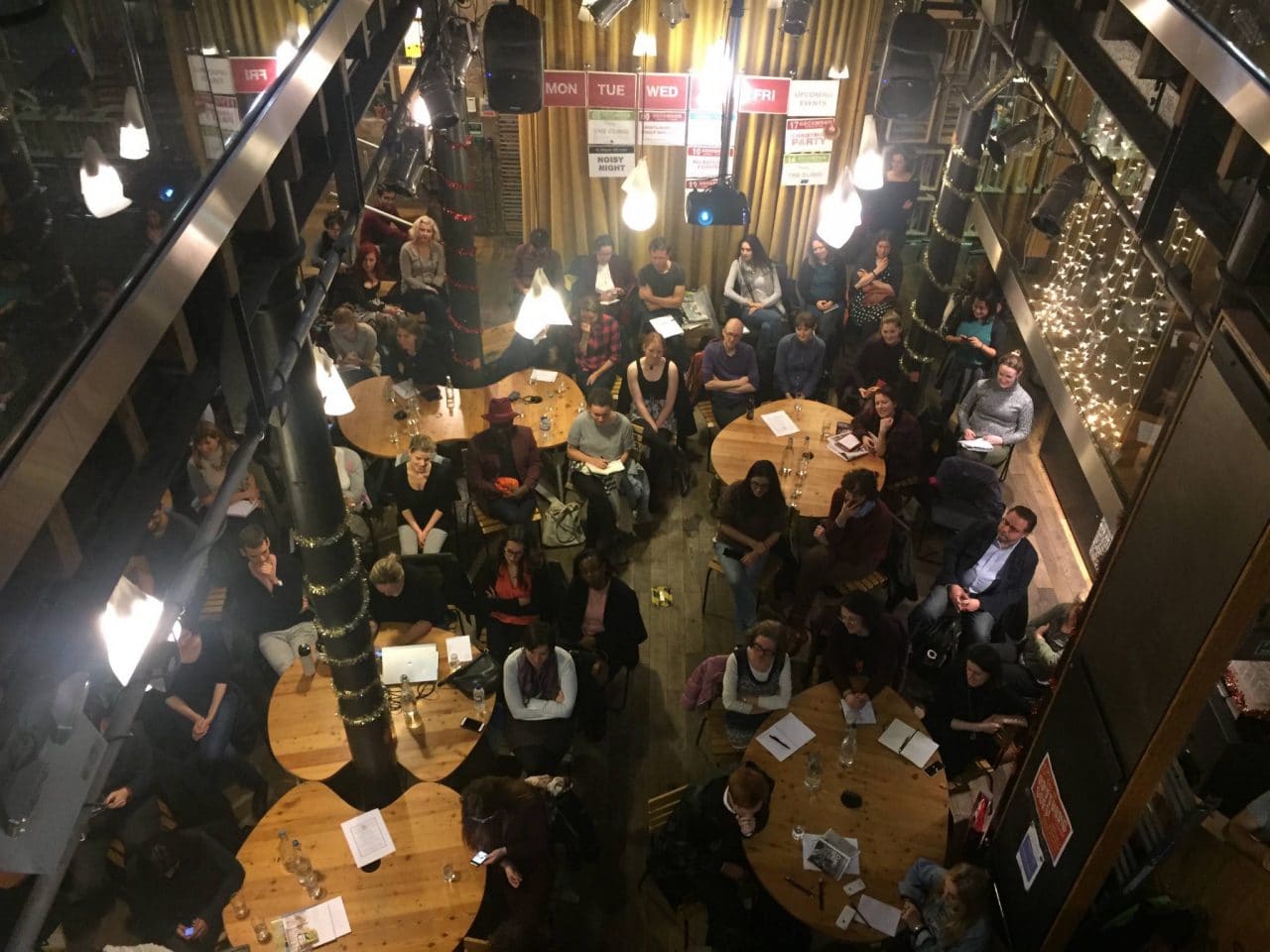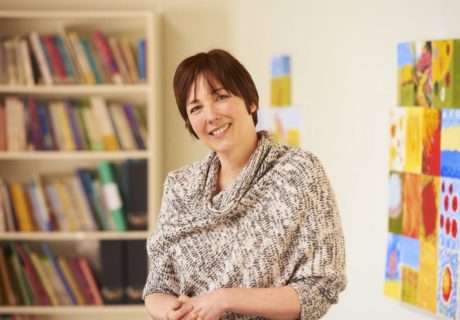Food Talks is a series of free quarterly events held in King’s Cross, London, to get people thinking about food. Elisabeth Winkler asks co-organizers, Charles Redfern, founder and MD of Organico and Fish4Ever, and Daniel Crossley, Food Ethics Council chief executive, what’s it all about
Charles Redfern I’ve been wanting to bring people together to talk about food – over good food – for a while. I wanted to expand the dialogue beyond my own organic circles, to a younger generation of foodies. There has been a revolution in food in the UK but it tends to be focused on single products. Some bloggers have huge voices when it comes to quinoa or avocado, but do they connect to the bigger issues like waste or sustainability? I fear that the foodie instinct by itself is not enough. The Hub in King’s Cross was up for giving us the venue and organizing it. I was on the cusp of contacting Dan about getting speakers when I realized the Food Ethics Council had moved to the Hub. It was very serendipitous.
Dan Crossley Charles belongs to the Food Ethics Council Business Forum – off-the-record dinner events for senior executives in the food industry to find out more about ethical questions such as obesity and climate change. Food Talks fits our ethos because it is about encouraging people to think differently and more deeply about food. Charles brought us all together, including environmental food consultant Think Eat Drink, to create a series of talks on food. We’d just moved our small team from Brighton to the Hub – it was one of those happy coincidences that brought everyone together.
Redfern Food Talks are definitely getting a wide cross-section beyond the food movement, particularly people with a professional interest such as charities, and academics. The format is two expert speakers who give a 15-minute talk followed by a Q&A discussion chaired by Dan. One of our talks was on the true cost of food. That’s something people in the organic movement might take for granted but to some of our audience, these are new and exciting ideas. We asked: is food is too cheap? Because the real cost of food including factory-farm pollution, farmers not paid enough and obesity, is not factored in. Or, is food too expensive? Think food banks. Of course, we can’t find the solutions in an evening; the idea is to get people thinking, and the discussions are certainly lively.
Crossley We are not here to preach. Many people are disconnected from food and farming – food is just fuel, and its huge environmental and social impact are not fully appreciated. We talk at the Food Ethics Council about deliberative thinking. We want people to have thoughts they’ve never had before. Our Meat Matters talk featured Dr Tara Garnett, founder of the Food Climate Research Network, and Philip Lymbery of Compassion in World Farming, who explained how we pay for our meat three times: at the checkout, through clean-up costs of health and the environment, and tax subsidies. He said if we stopped subsidizing grain that would be the end of factory farming.
Redfern Before you even consider your meat footprint, what about coffee or beer? Beer takes up a third of arable land in the UK, according to our speakers. Dr Garnett introduced us to the idea that how people think about the food problem – is it too much greed or not enough food? – triggers different solutions. She also talked about the substitution effect. If we cut down on dairy, how will plant-based alternatives affect sustainability? Everything is so connected when it comes to food, there’s not always an easy answer.
Crossley So, for instance, you can’t narrowly say eating meat is bad because it depends on who is saying it and in what part of the world. Everything has impacts and consequences. The Food Talks series is trying to zoom out to get that bigger perspective. That also means looking at how eating higher quality but less meat is important for a healthy diet, animal welfare and the environment. It is great to hear these conversations continue after the talks.
Redfern Our next talk is about waste and the kind of questions we want to ask are: do we really waste more food than previous generations? Why don’t we value our food properly? Future talks will be about fish sustainability, food rights, and the psychology of food. But before you think Food Talks is about clever marketing, let me assure you, it isn’t. I just need to be consistent with my beliefs. We have a rotten food system and a rotten economic system, and, for me, organic is at the heart of getting it right. Good food has to be good to the core. So let’s talk about it.
Future Food Talks
Food Talks is a series of free quarterly events that take place at the Impact Hub in King’s Cross, London, and rolls into 2016 with a further three challenging themes:
30 June: Fishy Business Is fish a success story for sustainability? If not, what are the problems and answers needed?
13 October: Food Fights and Food Rights Is the right to food a fundamental human right? How do we ensure governments fulfil their obligations around the right to food?
8 December: The Psychology of Food Food fads, obesity, anorexia, allergies, cele-brity chefs and more. Food has never been more in the headlines: can the psychological dimension help us understand what’s going on?
For more information click here.





